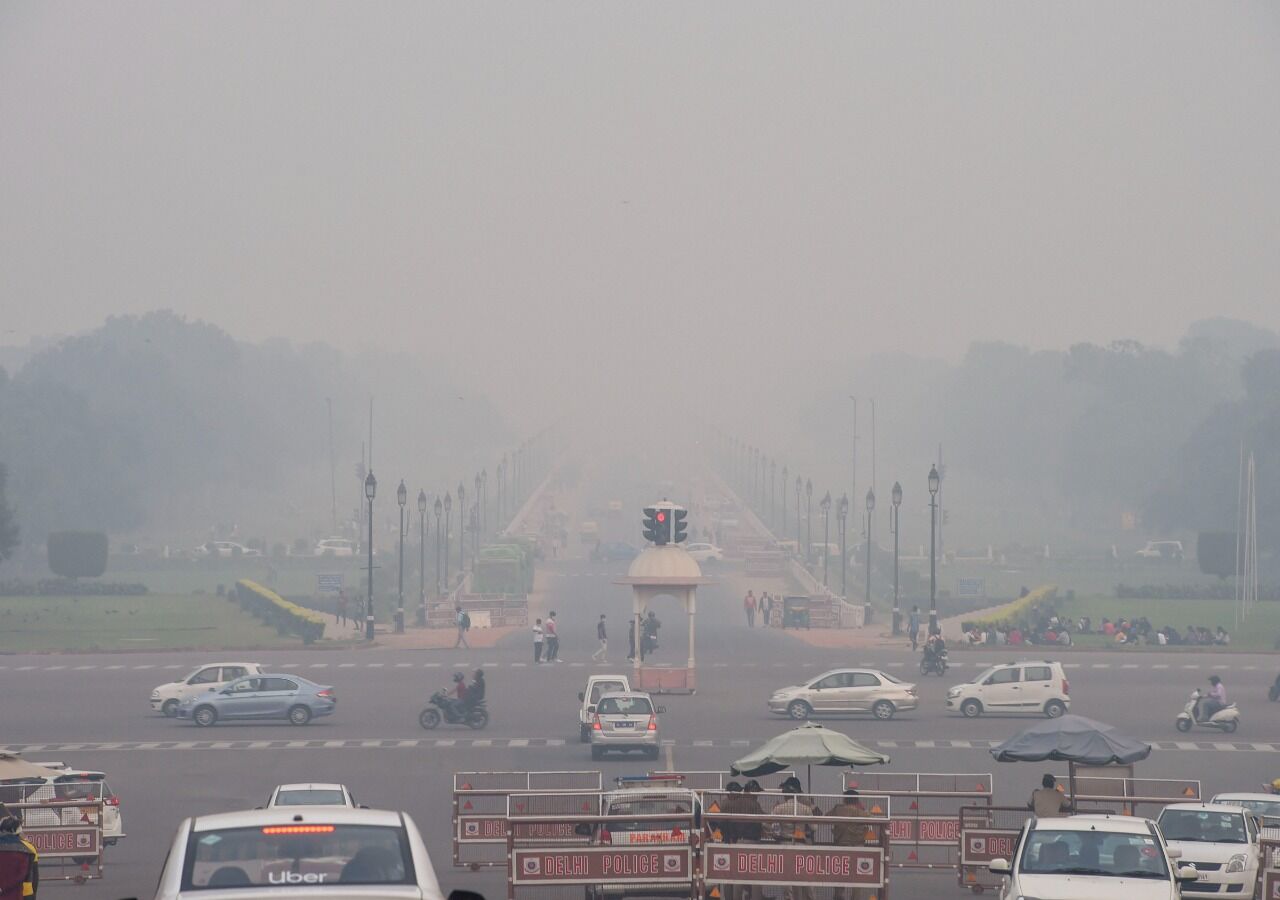No breath of clean air
India ranks second in global air pollution and the threat is now serious enough to reduce 5 to 10 years of people’s life expectancy. When will we act?

Every year we speak about air pollution exactly during Diwali. Does the festival of lights exacerbate air pollution? Yes, but only for a short period of time. For the remaining days of the year, Diwali is far from being the culprit. However, our right to breathe clean air, even though the most basic and essential right and bodily need, finds little importance among our populace.
I'm glad the Air Quality Life Index (AQLI) report is out four months before we usually rant about fire crackers and their contribution to air pollution. It gives us more time to understand sensibly and not confuse our facts on a crucial issue —air pollution. India has been found to be the second-most polluted country in the world, coming in after neighbouring Bangladesh. The pollution levels in our country are so dangerous that it's shortening lifespan by 5 years. And if you're unlucky to live in the Indian capital, that's 10 years shaved off your life expectancy. 10 years is a decade, people! Life's ups and downs and major happenings mark 10 years of a person's life. Ask someone who has lost a loved one to disease or accident, and you'll know that ten years seem like a lifetime for those who have faced sudden personal loss. And to think that we are knowingly sacrificing productive years of our life due to man-made crisis is unacceptable, frustrating, and a bit like a scene from a farcical play — both improbable and absurd.
The AQLI goes on to shed even more alarming details. Living in the Indo-Gangetic plains i.e., from the north Indian states traversing the Hindi heartland right till the Bengal delta, would reduce 7.6 years of life of 40 per cent of the habitants. It's estimated that over 500 million people live in the region. The report released by US research body, Energy Policy Institute at the University of Chicago (EPIC), further notes that while the rest of the world would lose 2 years of its life, air pollution that causes lungs and hearts disease, remains the single largest health threat to Indians. We have also contributed almost 44 per cent of global pollution since 2013.
Our prolific growth and delayed industrialisation have come at a cost. Since 1998, the average annual particulate pollution has upped by 61.4 per cent. The more we have grown, set up plants and factories, and built more infrastructure and buildings, the more we have burnt fossil fuels. Our increasing population with its booming power of consumption has bought more cars and bikes and therefore, leading to greater vehicular pollution. But along with this rapid growth also came blatant disregard for rules and regulation and green laws were given scant importance.
So, what do we do to improve our lives and those of our next generations? In a country like ours, no solution is simple enough. Even today, a majority of Indians live for today with no luxury of worrying for the future. They will perhaps laugh off the dangers of air pollution compared to the existing and more pressing concerns of livelihood. Here too, it will have to be our policymakers taking the lead. In 2019, the Indian government launched the National Clean Air Programme (NCAP) panel. The objective was to reduce PM2.5 in 122 Indian cities by 20-30 per cent by 2024, as compared to 2017 levels. We are not on track to achieving these targets, which are sadly non-binding and therefore, being bypassed without a care in the world.
The AQLI analysis reiterates what those of us, who are aware of the perils of air pollution and have been living in urban centres, have known all along. Only a drastic reduction in particulate pollution that matches the standards of the World Health Organisation (WHO), can increase the longevity of life. We, as the citizens, need to demand this from our leaders and administration. Enter reduction of air pollution into the manifesto of political parties and make our leaders accountable. The penalties for flouting rules should be high and every instance of wilful negligence should be clamped down. Some of us can escape to smaller towns, hill stations, and Goan beaches, but for the majority of the Indian population, there is no relief. It's them that we need to think of.
The writer is an author and media entrepreneur. Views expressed are personal



